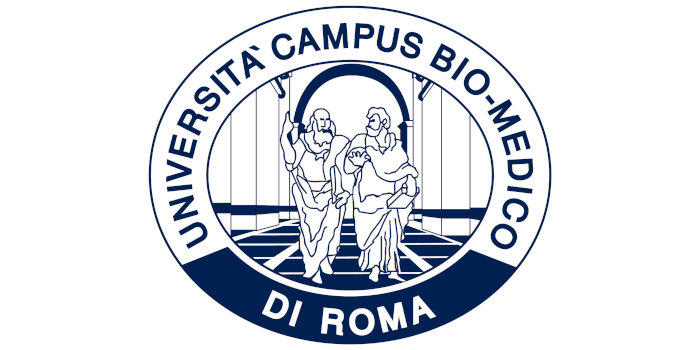SPECIAL SESSION #4
Intelligent Electronic Measurement Systems for Quality and Safety in Biomedical Applications
ORGANIZED BY
Salvatore Calcagno
DICEAM Dept., “Mediterranea” University, Reggio Calabria, Italy
Filippo Laganà
Dept. of Health Science “Magna Graecia” University, Catanzaro, Italy
Danilo Pratticò
DICEAM Dept., “Mediterranea” University, Reggio Calabria, Italy
Giovanni Angiulli
DIIES Dept., “Mediterranea” University, Reggio Calabria, Italy
ABSTRACT
This Special Session focuses on electronic measurement systems as the central element in ensuring quality, safety, and reliability in biomedical applications, with a strong emphasis on the integration of artificial intelligence (AI). In the evolving landscape of healthcare technologies, accurate, robust, and smart measurement solutions are essential to support clinical decision-making, device validation, and regulatory compliance.
The session offers a multidisciplinary platform for researchers, engineers, and clinicians to present recent advancements in electronic sensing, signal acquisition, and measurement architectures enhanced by AI techniques. Core topics include AI-supported signal processing, sensor fusion, adaptive calibration, and predictive analytics to improve measurement precision and reliability.
Particular attention will be given to contributions that demonstrate how AI can optimize measurement workflows, support real-time data interpretation, and enable advanced functionalities in biomedical systems — from wearable and implantable devices to complex diagnostic platforms.
Submissions are encouraged from academia, industry, and healthcare institutions that showcase novel strategies combining electronic measurements and AI to enhance performance, traceability, and safety throughout the biomedical device lifecycle.
TOPICS
Paper submissions are welcome on (but not limited to) the following topics:
- Biomedical instrumentation and sensing;
- AI-assisted signal processing and analysis;
- Sensor fusion in healthcare applications;
- Smart calibration and measurement validation;
- Embedded AI in wearable and implantable devices;
- Predictive maintenance and reliability in medical electronics;
- Real-time data acquisition and interpretation;
- Standards and regulatory aspects in biomedical measurements.
ABOUT THE ORGANIZERS
Salvatore Calcagno is a Researcher of Electrical and Electronic Measurements at the “Mediterranea” University of Reggio Calabria. He graduated in Electronic Engineering with a biomedical specialisation from the University of Naples in 1986. After an initial experience in the aerospace industry with Aeritalia, where he worked on safety and reliability assessments for aeronautical systems, he switched to academia. His research focuses on non-destructive electromagnetic diagnostics, renewable energy technologies and environmental monitoring. He has coordinated several national and European research projects and is the author of around 100 scientific publications. Prof. Calcagno is also active in academic governance, serving as Erasmus coordinator and university delegate for international mobility and student engagement.
Filippo Laganà (Member IEEE) received his degree in Electronic Engineering from the Mediterranea University of Reggio Calabria. In March 2015, he obtained a Ph.D. in Biomedical and Computer Engineering from the Magna Græcia University of Catanzaro. In April 2019, he earned a second Ph.D. in Civil, Environmental, and Safety Engineering from the Mediterranea University of Reggio Calabria. Since 2023, he has been a research fellow in Electronics at the Department of Health Sciences of the Magna Græcia University of Catanzaro. His research interests include digital electronics, biomedical signal analysis, embedded systems, and thermographic analysis for biomedical and industrial applications.
Danilo Pratticò (Student Member IEEE) graduated in 2022 in Energetic Engineering at the ‘Mediterranea’ University of Reggio Calabria. He is currently pursuing his Ph.D. in Civil, Energy, Environmental and Material Engineering at the ‘Mediterranea’ University of Reggio Calabria. His research interests include the study of machine learning, non-destructive testing, biomedical signal analysis, power management systems simulation.
Giovanni Angiulli (Senior Member, IEEE) received a Ph.D. degree in electronic engineering and computer science from the University of Naples Federico II in 1998. Since 1999, he has been an Adjunct Professor of Electrical Engineering with the Department of Information, Infrastructures, and Sustainable Energy (DIIES, formerly DIMET), Mediterranea University of Reggio Calabria, Italy. His main research interests include the electromagnetic characterization of metamaterials, NDT methods, group theory, and surrogate modeling techniques applied to electromagnetics and electrical engineering. In recent years, he has also worked on microwave imaging to detect female breast tumors and groundpenetrating radar applications in cultural heritage and characteristic mode theory. He is a member of the Institute of Electronics, Information and Communication Engineers (IEICE). He serves as an editor of Computation (MDPI) and an Associate Editor for the Journal of Engineering (Wiley), PEERJ Computer Science (Taylor & Francis), and IEEE Access. Recognizing his exceptional contributions, he has been honored as an Outstanding Associate Editor for 2018 by IEEE Access and as a Bronze Contributor by PEERJ Computer Science.








